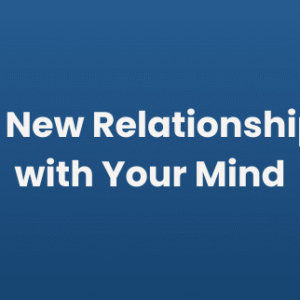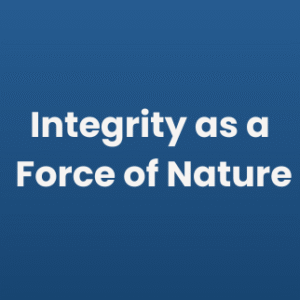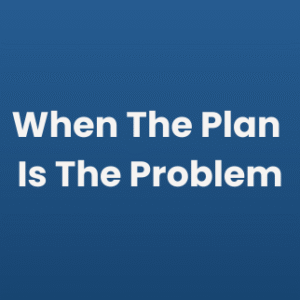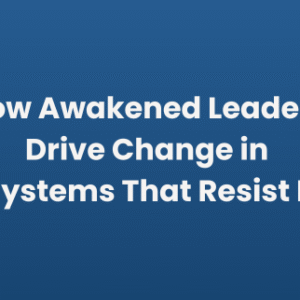The Intelligence Beyond Your Mind
Being a smart, analytical leader comes with a burden of always needing to have the ‘right’ answer. As I wrote in my reflections on 3,000 hours of coaching, this search for the right answer is often a trap. I know this weight intimately.
For most of my early life, I relied exclusively on my calculating mind. It’s the part of us that uses data, frameworks, and pro-con lists to de-risk the future. It’s a powerful tool, and for a long time, it worked…until the day it led me to a logical and terrifying conclusion: that my own life was not worth living.
In 2015, my mind concluded just that. The reasoning was sound, the analysis was valid, but the answer was quite literally a dead end. And yet, something in me did not agree, and still wanted to live. I came in touch with another layer of data: I called it ‘life force’.
Looking back, I realize this experience was my introduction to an intelligence beyond my calculating mind: Discernment
Where calculation assembles data to produce an answer, discernment is the capacity to quiet the noise and sense an answer that is already present. It often comes through as a felt sense – a quiet, holistic intelligence that the loud analysis of our mind can drown out. Some call it wisdom, some call it intuition, some call it the voice of God.
It’s the “gut feeling” we’re taught to mistrust, but as my story shows, it can be the most vital source of wisdom we have.
How This Shows Up in Leadership
How does an existential crisis relate to something like a quarterly business review? In the most fundamental way.
Every strategic decision is a fork in the road where the past (what we can analyze) meets the future (what is unknown). The calculating mind can give you a flawless map of the past, but only discernment can help you feel the territory of the future.
This is the difference between a decision that is merely logical and one that is aligned.
An aligned decision carries a sense of congruence and momentum that resolves the internal conflict and second-guessing that so often plagues leaders.
Cultivating discernment is a practice of shifting your attention. Since many of my clients ask for practical things that they can do in-between our coaching sessions, here are a few:
- Hold the question. The calculating mind hunts for an immediate answer. Discernment requires you to hold the question gently, creating the space for less obvious insights to emerge in their own time. To give you a taste, notice how your best thinking sometimes happens when you’re in the shower rather than when you’re breaking your head over your work desk.
- Listen to more than your mind. Before a critical decision, create a moment of silence. Ask yourself: Beyond the spreadsheet, what is my intuition telling me? What does my body feel? Notice a sense of expansion or contraction around this choice.
- Notice the Feeling of Action. After you decide, notice the feeling that follows. An aligned decision, even a difficult one, often brings a quiet sense of rightness. A purely calculated one can leave a residue of conflict. Learn to notice this difference.
The calculating mind is a brilliant advisor. The work of an Awakened Leader is to learn to use it as such, while giving the final vote to the quieter, deeper wisdom of discernment.
It is about learning to trust the intelligence beyond your mind. If trusting this deeper intelligence feels too risky, perhaps start with a simpler practice: just begin to notice all the ways your calculating mind, for all its brilliance, isn’t equipped to solve your deepest challenges. That noticing is the beginning of the journey.




